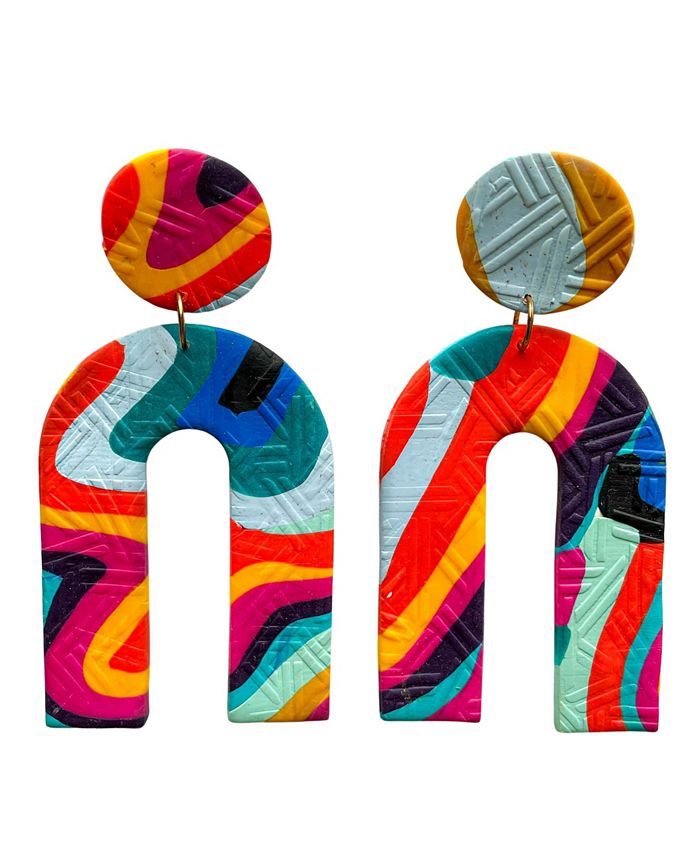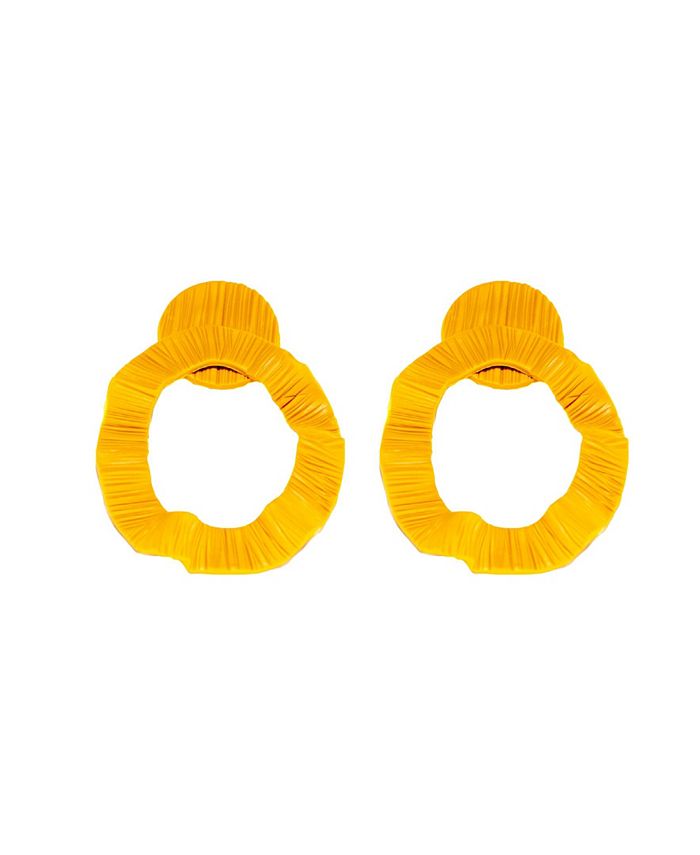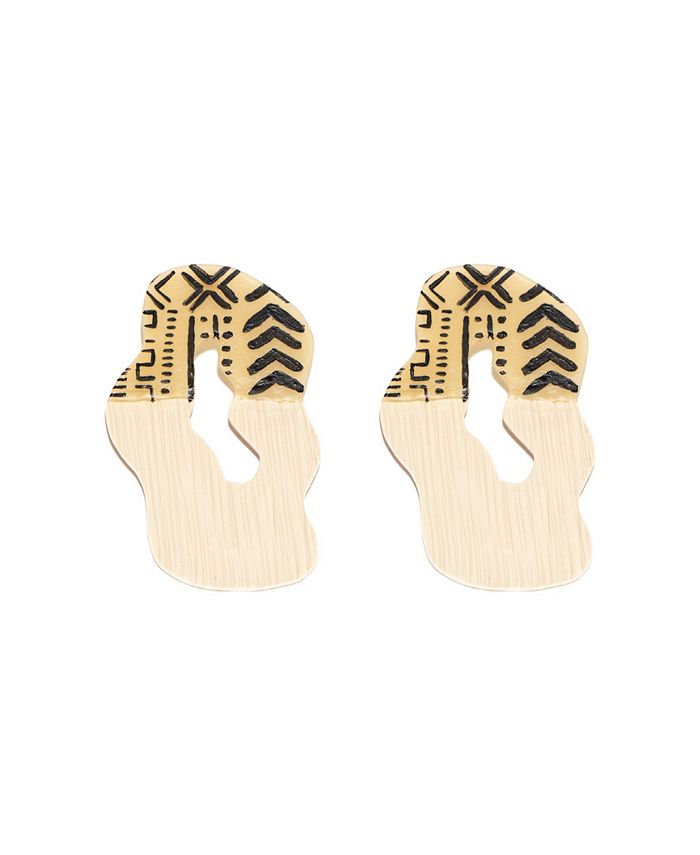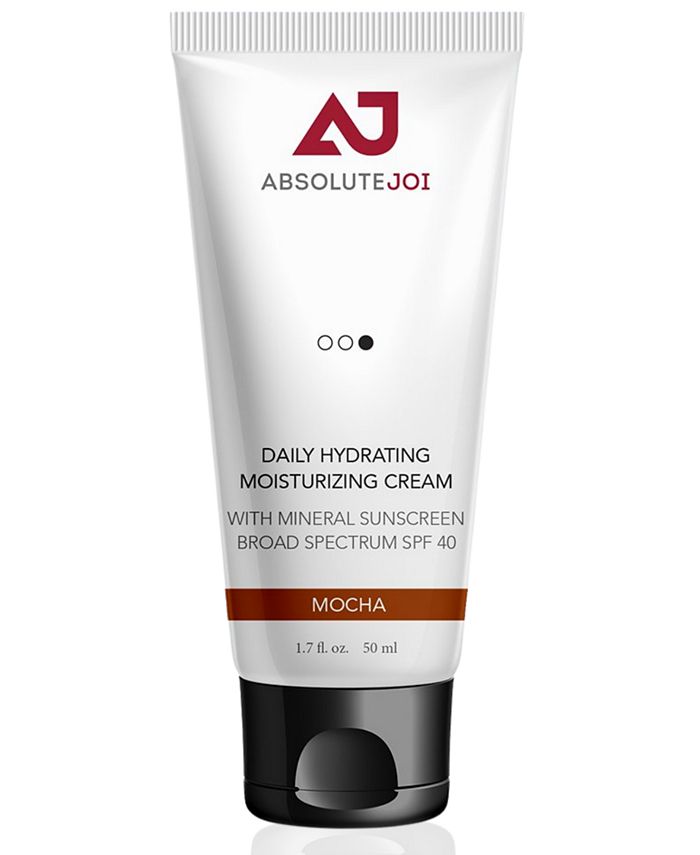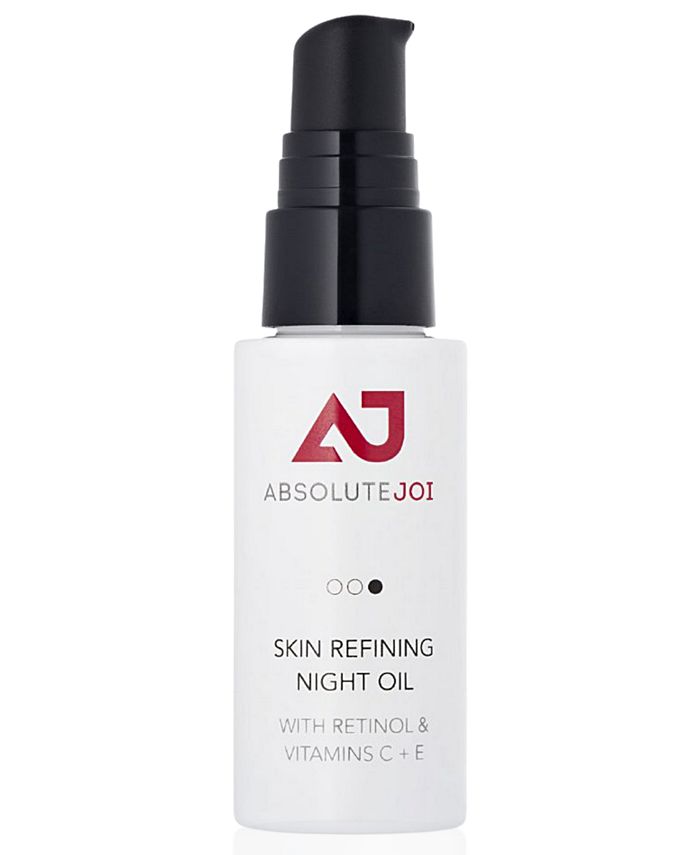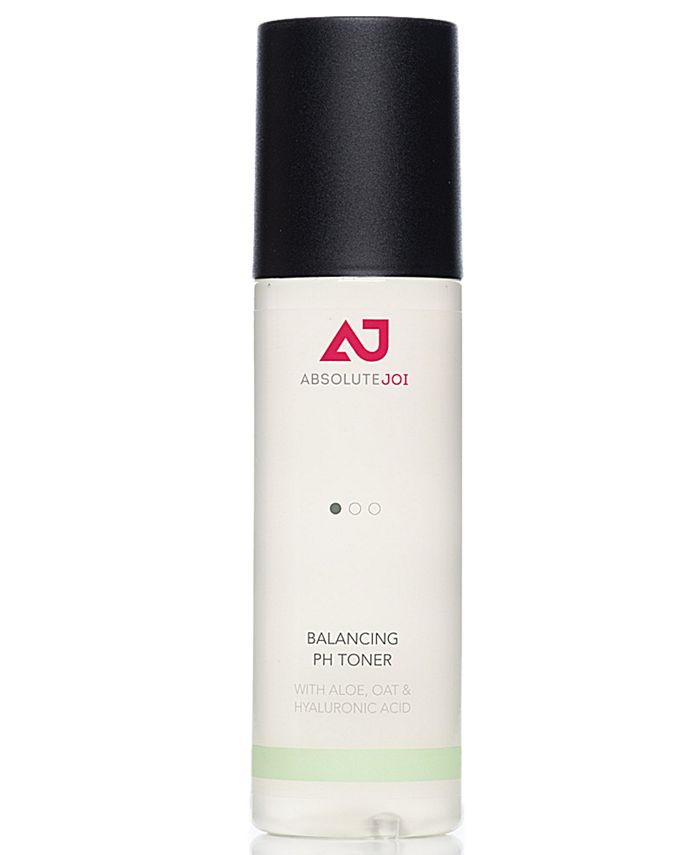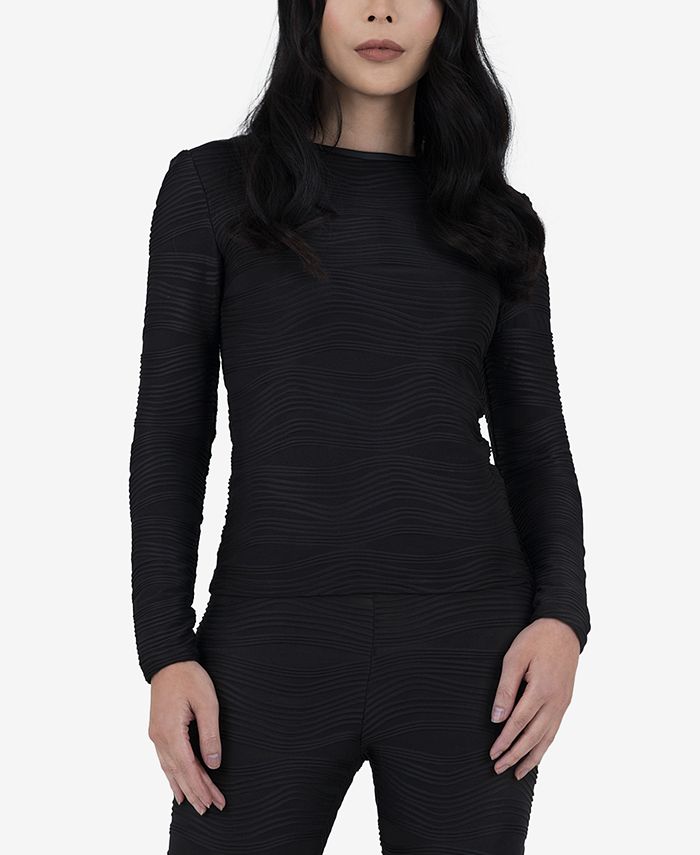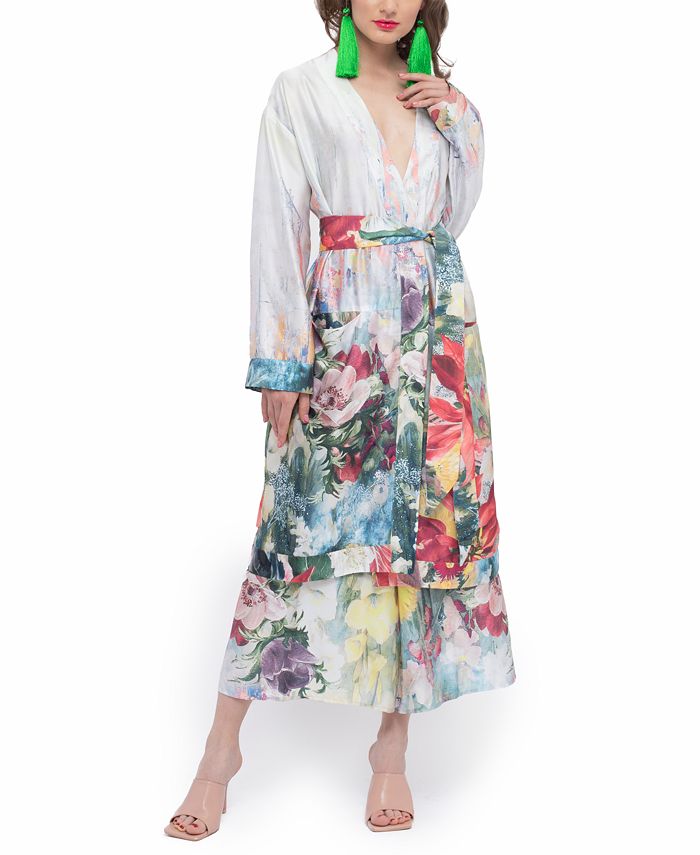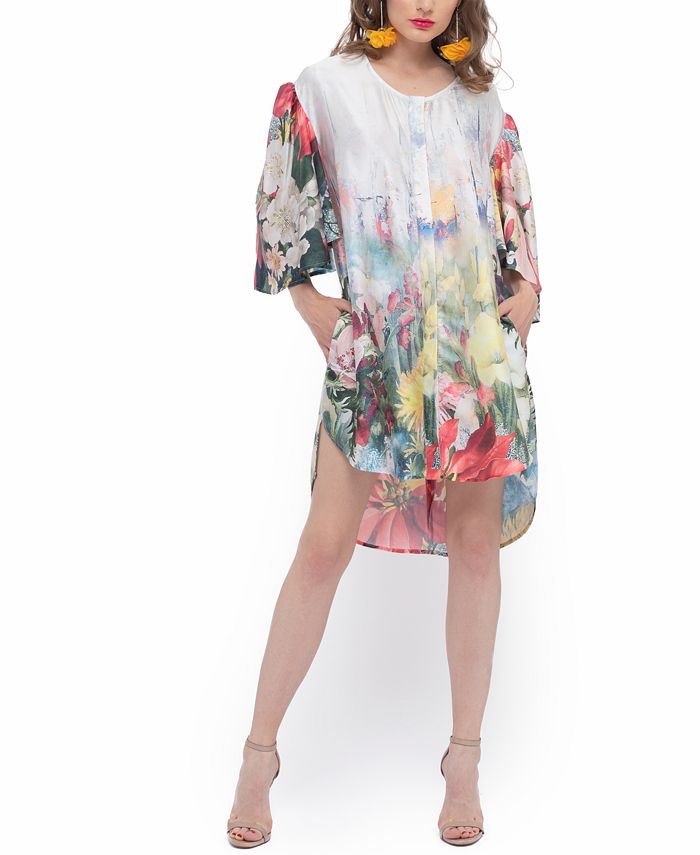In today’s world, launching and running your own business is no easy feat. That’s why we’ve partnered with The Workshop at Macy’s, an exclusive business development program designed to uplift women- and diverse-owned businesses and give them the tools for better success and sustained growth in the retail industry. Keep reading to get to know some of the program’s soon-to-be grads and shop a selection of their offerings at Macy’s Digital Pop-Up Event.
In the wake of social unrest in 2020, as the country reckoned head-to-head with its stance and role in racism, many companies released blanket statements professing their solidarity with Black people, most of which lacked emotion and felt more like a sink-or-swim tactic. Brands who declared to suddenly be woke were met with skepticism and the unanimous knowing that for years, their inaction reflected their failure to support the Black community both personally and professionally. History has shown that the system was never built to nurture Black-founded companies the way it has their white counterparts, making it nearly impossible for these brands to prosper and, in many cases, preventing them from ever getting off the ground.
AdvertisementADVERTISEMENT
But with more and more companies beginning to take inventory of their blind spots and part in systemic racism, this is starting to change. In fact, according to a 2021 survey by The Harvard Business Review and Global Entrepreneurship Monitor, 17% of Black women are in the process of starting or running new businesses, compared to the 10% of white women and 15% of white men. Indeed, Black women-owned businesses are on the rise, which may be because we’ve finally been given more access to the resources and capital to properly sustain them.
The rise of brand incubators and mentorship programs has certainly helped pave the way. Working to meet the growing needs of entrepreneurs who weren’t traditionally given a seat at the table, they help equip small businesses owners with the tools and support they need for success. By passing the mic to Black women, they give us the space to build community, empower one another, and, in part, inspire the next set of young Black entrepreneurs-to-be.
Ahead, get to know the founders of three Black-women-owned businesses in The Workshop at Macy’s program and how they’re using their platforms to inspire Black women to be their most authentic selves and forge their own paths.
Malisa Parke of Swanky Designs
Founded by creative mother-daughter duo Malisa and Imani Parke, Swanky Designs is a handcrafted jewelry, apparel, and home goods brand, most known for its bold and colorful statement earrings. Sharing a deep love of art and fashion, the pair have channeled this passion into creating pieces of wearable art that speak to women’s individuality.
AdvertisementADVERTISEMENT
More so than anything, the Parkes believe in lifting women up and creating collections that complement that. “My goal is to empower other women to live their authentic lives, to not be afraid of standing out,” says Malisa. Rather than follow the ever-changing trend cycle, they aim to stay true to themselves, drawing inspiration from both the world around them and their roots. “We’re from New York, so we’re always in the city, looking at things like shapes and buildings,” Malisa explains. “We’re also very much into African-inspired jewelry, but with a twist, and we’d like to continue digging deeper into that.”
Ahead, Refinery29 spoke with Malisa about her creative relationship with her daughter, how it’s shaped their brand journey, and why we all should be our own trendsetters.
You run your brand with your daughter, Imani. What inspired you to go into business together?
“We both have the creative gene. Imani has always been a super creative person. She started designing clothing at 14, while I used to sell jewelry at different vendor shows. One day I said to myself, You know what? I can do this myself. I prefer my own creativity, and Imani told me she wanted to do the same. Our creative juices flowed so well together that I suggested we do it as a team, and that's pretty much how it was born.”
“We both have the creative gene. Imani has always been a super creative person. She started designing clothing at 14, while I used to sell jewelry at different vendor shows. One day I said to myself, You know what? I can do this myself. I prefer my own creativity, and Imani told me she wanted to do the same. Our creative juices flowed so well together that I suggested we do it as a team, and that's pretty much how it was born.”
What lessons have you taught each other throughout your brand journey? How has your business strengthened your mother-daughter relationship?
“Imani teaches me a lot. Because she's younger, she keeps me very fresh, but she also allows me to make mistakes. She’s teaching me not to be so constrained and to be freer. At this point in her life, I'm guiding her through it and helping her learn to [navigate it]. Being in business together strengthens our relationship in some ways, but she’s my daughter, so we butt heads a lot. When you're in business with anyone, you're going to clash; it can be tough, but then I’m reminded of the importance of our relationship”
“Imani teaches me a lot. Because she's younger, she keeps me very fresh, but she also allows me to make mistakes. She’s teaching me not to be so constrained and to be freer. At this point in her life, I'm guiding her through it and helping her learn to [navigate it]. Being in business together strengthens our relationship in some ways, but she’s my daughter, so we butt heads a lot. When you're in business with anyone, you're going to clash; it can be tough, but then I’m reminded of the importance of our relationship”
AdvertisementADVERTISEMENT
In what ways do you use your brand to uplift and empower Black women?
“I hope to influence Black women to know they can do this, too, and that there's room for everyone in jewelry making, no matter what medium you're using. Age shouldn’t stop you from doing anything, know you can do it whenever you want. I also don’t think we should be so concerned about following fashion trends; we should be our own trendsetters. You shouldn’t have to worry about buying or being the latest — just do you. It’s a constant learning experience — we ask ourselves: How can we get better? What's going to be the best for us?”
“I hope to influence Black women to know they can do this, too, and that there's room for everyone in jewelry making, no matter what medium you're using. Age shouldn’t stop you from doing anything, know you can do it whenever you want. I also don’t think we should be so concerned about following fashion trends; we should be our own trendsetters. You shouldn’t have to worry about buying or being the latest — just do you. It’s a constant learning experience — we ask ourselves: How can we get better? What's going to be the best for us?”
What advice do you have for young Black entrepreneurs?
“Read, learn, and get a mentor. Don't just jump into it and expect things to happen because you'll be quickly disappointed that it doesn't happen that way. If you’re an entrepreneur, what you do is your passion, and it comes naturally to you. But you also need to read about the business side of things. Understanding capital, loans, taxes, and manufacturing; these are things you have to know. Talk to people who are doing it and be open to accepting help.”
“Read, learn, and get a mentor. Don't just jump into it and expect things to happen because you'll be quickly disappointed that it doesn't happen that way. If you’re an entrepreneur, what you do is your passion, and it comes naturally to you. But you also need to read about the business side of things. Understanding capital, loans, taxes, and manufacturing; these are things you have to know. Talk to people who are doing it and be open to accepting help.”
Dr. Anne Beal of AbsoluteJOI
For many Black consumers, the desire to take better care of our skin has been hindered by the fact that we’ve been long ignored by mainstream beauty brands. This makes it taxing to source products to effectively combat the most common concerns of melanated skin, like hyperpigmentation and dark spots. So was the case with physician Dr. Anne Beal, who launched AbsoluteJOI after struggling to find products that worked both for her and her daughters. Her research led her to discover that 70% of women of color believe the products currently available don’t work for them, so she developed her own, tailored to women over the age of 35 seeking to address signs of aging.
AdvertisementADVERTISEMENT
“There are so many products available that address aging, but people with melanin-rich skin don’t show aging with fine lines and wrinkles,” Dr. Beal says. “Instead, we start to show age with changes in skin tone and dark marks.” Fusing scientifically based active ingredients and soothing botanicals, AbsoluteJOI products focus on balancing and nourishing the complexion while reducing the damage caused by aging and hyperpigmentation. Rather than offer a dizzying array of products, Dr. Beal took a minimalist approach by launching a tight edit of cleanly formulated necessities, such as a tinted daily SPF moisturizer and a retinol-powered, tone-evening night oil.
Ahead, Refinery29 spoke with Dr. Beal about how she uses her brand and platform to make Black women feel more seen, plus the skin-care advice every woman of color should follow.
When it comes to caring for skin of color, what are some of the most common misconceptions?
“Historically, there have been a lot of recommendations for products and home remedies, including everything from lemon juice and apple cider vinegar to using bleach — both medicinal like hydroquinone and actual commercial bleach. The reality is that skin of color is incredibly sensitive, so we need to take a very gentle approach. Secondly, the approach toward aging skin care for the general population is very much centered on fine lines and wrinkles, but many women of color first develop dark spots and changes in skin tone and, later, the lines. So when you're thinking melanin-rich skin, the approach should be to address tone first.”
“Historically, there have been a lot of recommendations for products and home remedies, including everything from lemon juice and apple cider vinegar to using bleach — both medicinal like hydroquinone and actual commercial bleach. The reality is that skin of color is incredibly sensitive, so we need to take a very gentle approach. Secondly, the approach toward aging skin care for the general population is very much centered on fine lines and wrinkles, but many women of color first develop dark spots and changes in skin tone and, later, the lines. So when you're thinking melanin-rich skin, the approach should be to address tone first.”
AdvertisementADVERTISEMENT
What is the most important skin-care advice you think every woman of color should follow?
“Sunscreen, sunscreen, sunscreen, all day, every day. Many women of color think they don't need it because they have melanin, but we do. We age with dark marks, and those are signs of sun damage. It’s also important to look for a sunscreen with blue light protection. Recent studies have shown that the blue light emitted from our screens — like our phones and computers — causes hyperpigmentation in darker-toned skin. Retinol is also a fabulous ingredient [for evening skin tone].”
“Sunscreen, sunscreen, sunscreen, all day, every day. Many women of color think they don't need it because they have melanin, but we do. We age with dark marks, and those are signs of sun damage. It’s also important to look for a sunscreen with blue light protection. Recent studies have shown that the blue light emitted from our screens — like our phones and computers — causes hyperpigmentation in darker-toned skin. Retinol is also a fabulous ingredient [for evening skin tone].”
In what ways do you use your brand to uplift and empower Black women?
“First and foremost, to say I see you. I recently posted a video discussing the four features of melanated skin that make us unique, and so many commenters mentioned how they feel seen and heard. I've also posted reels where I share the behind-the-scenes of our photoshoots, and it’s just a melanin celebration. I'm also very deliberate in who I collaborate with and what businesses I work with, and I try to seek out other Black women as business partners. I have aspirations to, at some point, grow the company to where we can invest in and mentor other businesses.”
“First and foremost, to say I see you. I recently posted a video discussing the four features of melanated skin that make us unique, and so many commenters mentioned how they feel seen and heard. I've also posted reels where I share the behind-the-scenes of our photoshoots, and it’s just a melanin celebration. I'm also very deliberate in who I collaborate with and what businesses I work with, and I try to seek out other Black women as business partners. I have aspirations to, at some point, grow the company to where we can invest in and mentor other businesses.”
What advice do you have for young Black entrepreneurs?
“One, I would say read and be well-read. Two, don't start a business — solve a problem, and the business will come. When you solve a problem, the implication is that you know who your customer is, what they want, and what their challenges are. If you solve their problems, then you have a business there. Take a customer-focused approach.”
“One, I would say read and be well-read. Two, don't start a business — solve a problem, and the business will come. When you solve a problem, the implication is that you know who your customer is, what they want, and what their challenges are. If you solve their problems, then you have a business there. Take a customer-focused approach.”
AdvertisementADVERTISEMENT
Terese Brown of Terese Sydonna
Jamaican-born, New York-raised designer Terese Brown infuses her vibrant Jamaican culture and love of Japanese art and architecture into every collection she creates. A self-starter, she’s greatly focused on inspiring women to step into their authentic selves for their communities and, most importantly, themselves. “I personally understand the struggles women face navigating pressure to fit a particular image and standard of beauty,” she says. “I want to change this and empower them to confidently reveal their inner strength and untapped superpowers.” And so, she considers her sophisticated collection of dresses, robes, two-piece sets, and accessories as “modern armor.”
Many white or non-Black entrepreneurs start businesses with capital from generations of wealth in their families, but unfortunately, this is not a common thread in the Black community. Brown, who has experienced her own career pivots and understands the value of mentorships and incubator programs first-hand, is looking to change that with her work on several advisory boards centered around entrepreneurship. “As a minority business owner, being authentic, being unapologetic about my story of sacrifice, dreaming big, and overcoming the extra hardships to be where I am now are what matters most,” she says.
Ahead, Refinery29 spoke with Brown about what led her to start a brand of her own and the importance of uplifting other Black women.
You began your career in finance and then pivoted to working with some of the biggest names in fashion. What inspired you to make this transition and eventually start a brand of your own?
“As an immigrant and the oldest in my family, it was always my mother’s dream for me to be successful and get a “big” job, and for a while, I bought into that. I did my stint on Wall Street, but it just didn't feel right or feel like me, so I made the transition to buying and merchandising. I started working as an assistant buyer at a major retailer right before the 2008 recession, and one day I went to work, and half of us were fired. I remember feeling so relieved; it was my opportunity to get out to do what I really wanted to do. The next week, I was enrolled in a one-year design program, and within a year’s time, I was working as a designer by day and on my own line, Terese Sydonna, by night.”
“As an immigrant and the oldest in my family, it was always my mother’s dream for me to be successful and get a “big” job, and for a while, I bought into that. I did my stint on Wall Street, but it just didn't feel right or feel like me, so I made the transition to buying and merchandising. I started working as an assistant buyer at a major retailer right before the 2008 recession, and one day I went to work, and half of us were fired. I remember feeling so relieved; it was my opportunity to get out to do what I really wanted to do. The next week, I was enrolled in a one-year design program, and within a year’s time, I was working as a designer by day and on my own line, Terese Sydonna, by night.”
AdvertisementADVERTISEMENT
You proudly manufacture your collections in New York City’s Garment District. Why is it important to you to keep your brand locally made?
“I feel like I'm living my American dream. I’m proudly Jamaican, a New Yorker, and a Bronxite, and I feel like New York has given so much to me. I love working with the small businesses that make Terese Sydonna what it is. Every single person that I work with who helps us create the prints, that do our manufacturing, or handle our grading and marking is part of an individual family business of color and immigrants. It feels so good to know that, together, we’re creating something so beautiful. It means the world to me knowing that I'm helping out my community.”
“I feel like I'm living my American dream. I’m proudly Jamaican, a New Yorker, and a Bronxite, and I feel like New York has given so much to me. I love working with the small businesses that make Terese Sydonna what it is. Every single person that I work with who helps us create the prints, that do our manufacturing, or handle our grading and marking is part of an individual family business of color and immigrants. It feels so good to know that, together, we’re creating something so beautiful. It means the world to me knowing that I'm helping out my community.”
In what ways do you use your brand to uplift and empower Black women?
“My brand is all about authenticity. I wasn't able to truly tell my story until I started being authentic in owning the fact that I am a Black woman. How can I design something if I'm not empowering myself and empowering Black women, too? When I look back on my time on Wall Street and in buying and merchandising, there were so many spaces where I couldn't be myself, where my hair was an issue, or where I was the only Black woman. Many of my clientele are Black women, and they face these same challenges every single day. I wanted to change that, so I sought out to create a community centered around celebrating each other and what makes us unique. I couldn’t do any of this without celebrating Black women because they truly built my business and helped me get to where I am today.”
“My brand is all about authenticity. I wasn't able to truly tell my story until I started being authentic in owning the fact that I am a Black woman. How can I design something if I'm not empowering myself and empowering Black women, too? When I look back on my time on Wall Street and in buying and merchandising, there were so many spaces where I couldn't be myself, where my hair was an issue, or where I was the only Black woman. Many of my clientele are Black women, and they face these same challenges every single day. I wanted to change that, so I sought out to create a community centered around celebrating each other and what makes us unique. I couldn’t do any of this without celebrating Black women because they truly built my business and helped me get to where I am today.”
What advice do you have for young Black entrepreneurs?
“Whatever your idea, always listen to that inner voice telling you to do it. No one is going to cheer for you as hard as yourself. You are your biggest cheerleader. I also think young entrepreneurs need to realize that the story behind your brand is what matters. People are more interested in ideas, feelings, and stories — they care less about the clothes, they buy them because it’s you, and that's what makes you magic.”
“Whatever your idea, always listen to that inner voice telling you to do it. No one is going to cheer for you as hard as yourself. You are your biggest cheerleader. I also think young entrepreneurs need to realize that the story behind your brand is what matters. People are more interested in ideas, feelings, and stories — they care less about the clothes, they buy them because it’s you, and that's what makes you magic.”
AdvertisementADVERTISEMENT








